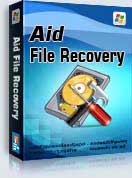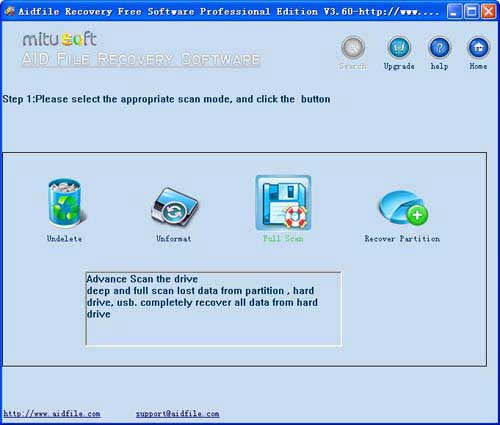SSD Not Showing Up In List Of Drives repair tool fix to do data recovery, best file Recovery software help you recover MS word,excel, pictures, music, video files from SSD Not Showing Up In List Of Drives
Use "unformat" to recover formatted drive for " SSD Not Showing Up In List Of Drives" after quick format,full format,accidentally formatted,reformatting,High-level formatting,Low-level formatting.
Use "recover partition" to recover files - SSD Not Showing Up In List Of Drives partition,lost partition,changed ,damaged partition.And if the size or position of partition is changed by format,It can not recover with "unformat"so you can use "recover partition"mode.
Use "undelete" to recover deleted files - SSD Not Showing Up In List Of Drives after Virus attack,Recycle bin clear,disk cleanup,Press shift del by mistake,permanently empty recycle bin,shift delete ,accidentally deleted by a mistake.
Use "Full Scan" to recover data - SSD Not Showing Up In List Of Drives which can not be found with "undelete" and "unformat" and "recover partition",after showing an error,display as raw file system,unformatted,unknown partition,unpartitioned,needs to be formatted,or the file system is not exfat,not fat32,not ntfs.
"SSD Not Showing Up In List Of Drives ", I am installing a new Vertex2 180GB SSD drive in my Dell Precision 390 running Win 7 Ultimate in 64bit w/8gigs of ram. I have two 75GB sata drives and moved the plugs from the 2nd drive to the SSD drive and booted the system up. The drive shows up elsewhere but does not show up under "computer" which lists all other drives, CD ROMs, etc on the system. I have several external drives and 2 CD ROM drives. I checked the boot config as well as the Windows Device Manager and both list the SSD drive. This leads me to believe that there is something else that must be done before the drive is accessible as usable space. I did a right-click on the drive in device manager and reviewed all the options available there and there are no issues. I am going to change my OS to another version of Win 7 but planned to do that after transferring the data to the SSD.
Aidfile Recovery Software Keyfeature
support FAT32 EXFAT NTFS and RAW file system
support Win32 (32 bits) and Win64 (64 bits)
Support Windows XP, Windows 8, Windows 8.1,Windows Vista, Windows 2003, 2008, 2012,Windows 10,Windows 7 .
Desktop & laptops Ultrabook:HP Pavilion,HP Compa,Alienware Alpha,Lenovo ThinkCentre,Lenovo IdeaCentre,Dell Inspiron,Dell XPS,Sony VAIO,Acer Aspire,Asus Transformer,Dell Latitude,Samsung Ativ Book,Asus VivoBook,HP Envy,Lenovo IBM ThinkPad,Lenovo IdeaPad Yoga,Microsoft Surface,Toshiba Satellite
MS Office document (Word, Excel, PowerPoint, Outlook) types (doc, docx, ppt, pptx, xls, xlsx, pst, etc.),photos (JPG, PNG, ICON, TIF, BMP, RAF, CR2, etc.), videos and audios (MPG, MP4, MP3, MTS, M2TS, 3GP, AVI, MOV, RM, RMVB, etc.), compressed files (rar, zip, etc.), PE files (exe, dll, lib, etc.) and so on.

